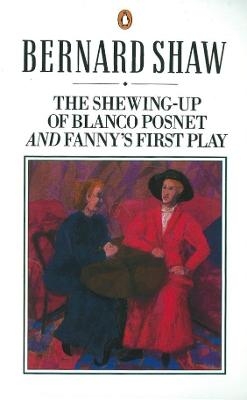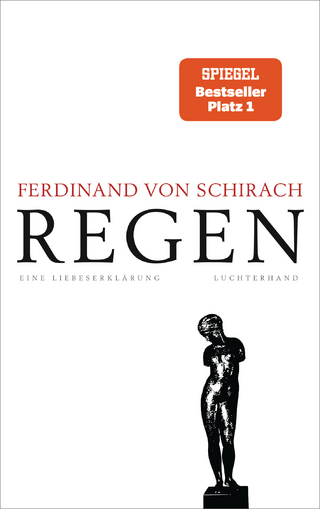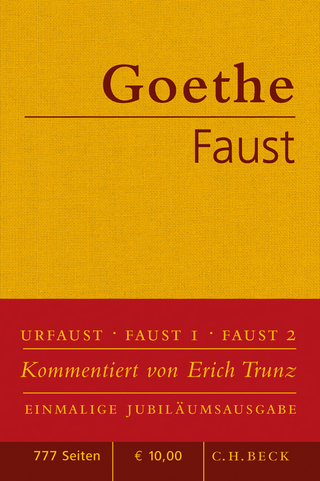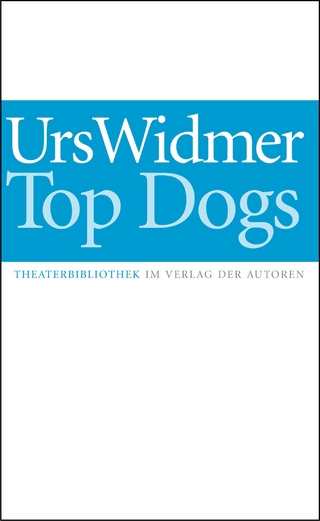
The Shewing-up of Blanco Posnet and Fanny's First Play
Penguin Classics (Verlag)
978-0-14-045025-5 (ISBN)
- Titel ist leider vergriffen;
keine Neuauflage - Artikel merken
‘A tearing, flaring, revivalist drama’ was how Desmond MacCarthy described The Shewing-up of Blanco Posnet. Set in America’s Wild West and aptly subtitled ‘A Sermon in Crude Melodrama’, this single-act play concerns the conversion of a horse thief desperate to ‘keep the devil’ in him and die game. Published in 1909, it brought Shaw into conflict with the Lord Chamberlain of England, who banned it on the grounds of alleged blasphemy, and it was twelve years before the play was performed in a London theatre. In an interview Shaw commented, ‘I am sorry that Fanny’s First Play has destroyed the cherished legend that I am an unpopular playwright … for the first time I have allowed a play of mine to run itself to death … And the worst of it is it will not die.’ First performed in 1911, the play is a delightful farce in which Shaw debates some of his favourite subjects: middle-class morality, marriage, parents and children and women’s rights. And, deliberately concealing his authorship, Shaw took the opportunity to satirize contemporary drama critics who, he claimed, ‘do not know dramatic chalk from dramatic cheese when it is no longer labelled for them.’
BERNARD SHAW was born in Dublin in 1856. After his arrival in London in 1876 he became an active Socialist and a brilliant platform speaker. He wrote on many social aspects of the day: on Common Sense about the War (1914), How to Settle the Irish Question (1917) and The Intelligent Woman’s Guide to Socialism and Capitalism (1928). He undertook his own education at the British Museum and consequently became keenly interested in cultural subjects. Thus his prolific output included music, art and theatre reviews, which were collected into several volumes such as Music in London 1890–1894 (3 vols, 1931); Pen Portraits and Reviews (1931); and Our Theatres in the Nineties (3 vols, 1931). He also wrote five novels and some shorter fiction, including The Black Girl in Search of God and Some Lesser Tales and Cashel Byron’s Profession, both published in Penguin’s Bernard Shaw Library. He conducted a strong attack on the London theatre and was closely associated with the intellectual revival of British theatre. His plays fall into several categories: ‘Plays Pleasant’; ‘Plays Unpleasant’; comedies; chronicle-plays; ‘metabiological Pentateuch’ (Back to Methuselah, a series of plays); and ‘political extravaganzas’. Bernard Shaw died in 1950.
The Censorship; A Readable Bluebook; How Not To Do It; The Story of The Joint Select Committee; Why the Managers Love the Censorship; A Two Guinea Insurance Policy; Why the Government Interfered; The Peers on the Joint Select Committee; The Committee's Attitude towards the Theatre; A Bad Beginning; A Comic Interlude; An Anti-Shavian Panic; A Rare and Curious First Edition; The Times to the Rescue; The Council of Ten; The Sentence; The Execution; The Rejected Statement - Part I The Witness's Qualifications; The Definition of Immorality; What Toleration Means; The Case for Toleration; The Limits to Toleration; The Difference between Law and Censorship; Why the Lord Chamberlain?; The Diplomatic Objection to the Lord Chamberlain; The Objection of Court Etiquet; Why not an Enlightened Censorship?; The Weakness of the Lord Chamberlain's Department; An Enlightened Censorship still worse than the Lord Chamberlain 's; The Practical Impossibilities of Censorship; The Arbitration Proposal. The Rejected Statement - Part II The Licensing of Theatres - The Distinction between Licensing and Censorship; Prostitution and Drink in Theatres; Why the Managers dread Local Control; Desirable Limitations of Local Control; Summary of the Rejected Statement; Preface resumed - Mr George Alexander's Protest; Eliza and Her Bath; A King's Proctor; Counsel's Opinion; Wanted: A New Magna Charta; Proposed: A New Star Chamber; Possibilities of the Proposal; Star Chamber Sentimentality; Anything for a Quiet Life; Shall the Examiner of Plays Starve?; Lord Gorell's Awakening; Judges: Their Professional Limitations; Conclusion; Postscript.
| Erscheint lt. Verlag | 27.8.1987 |
|---|---|
| Verlagsort | London |
| Sprache | englisch |
| Maße | 133 x 199 mm |
| Gewicht | 158 g |
| Themenwelt | Literatur ► Lyrik / Dramatik ► Dramatik / Theater |
| ISBN-10 | 0-14-045025-4 / 0140450254 |
| ISBN-13 | 978-0-14-045025-5 / 9780140450255 |
| Zustand | Neuware |
| Haben Sie eine Frage zum Produkt? |


